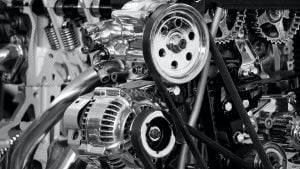How to Take Care of Your Car: A Comprehensive Guide to Car Maintenance


How to Take Care of Your Car: A Comprehensive Guide to Car Maintenance


Introduction
Proper car maintenance is essential for the longevity, performance, and safety of your vehicle. By following a comprehensive car maintenance routine, you can prevent breakdowns, expensive repairs, and ensure a smooth and enjoyable driving experience. In this guide, we will provide you with a detailed overview of car maintenance tasks and valuable tips to keep your car in excellent condition.
1. Regular Oil Changes
Regular oil changes are vital for the health and longevity of your car’s engine. Engine oil lubricates the internal components, reduces friction, and helps dissipate heat. Over time, the oil breaks down and becomes contaminated with debris, which can lead to engine wear and decreased performance. Here’s how to maintain proper oil levels:
Tip 1: Follow the Manufacturer’s Recommendations
To determine the optimal oil change intervals for your car, consult the owner’s manual or check the manufacturer’s recommendations. The typical oil change interval is every 3,000 to 5,000 miles or every 3 to 6 months, but this may vary depending on your driving habits, climate, and the type of oil used.
Tip 2: Use High-Quality Oil and Filters
When performing an oil change, always use high-quality oil that meets the manufacturer’s specifications. The correct viscosity and type of oil are crucial for optimal engine performance. Additionally, replace the oil filter during each oil change to ensure efficient filtration and prevent contaminants from circulating in the engine.
2. Check and Maintain Fluid Levels
Proper fluid levels are essential for the smooth operation of various systems in your car. Regularly check and maintain the following fluids:
Tip 3: Regularly Inspect Engine Coolant
Engine coolant, also known as antifreeze, helps regulate the engine temperature and prevents it from overheating. Check the coolant level regularly, especially before long trips. If the coolant level is low, top it up with a mixture of coolant and distilled water as specified by the manufacturer.
Tip 4: Monitor Brake Fluid
Brake fluid is crucial for the proper functioning of your car’s braking system. Inspect the brake fluid level at regular intervals and ensure it falls within the recommended range. If the level is low, it may indicate a leak or worn brake components, necessitating a thorough inspection and possible repairs.
Tip 5: Check Power Steering Fluid
Power steering fluid enables smooth steering operation. Locate the power steering fluid reservoir, usually located near the engine, and check the fluid level regularly. If it’s low, top it up with the recommended fluid as specified by the manufacturer.
Tip 6: Monitor Transmission Fluid
Transmission fluid is essential for the proper functioning and longevity of your car’s transmission system. Refer to the owner’s manual to locate the transmission dipstick. Check the fluid level and condition regularly. If it appears low or discolored, consult a qualified mechanic for further inspection and potential fluid replacement.
3. Tire Maintenance
Proper tire maintenance is vital for your safety, fuel efficiency, and tire lifespan. Follow these tips to keep your tires in optimal condition:
Tip 7: Maintain Proper Tire Pressure
Check your tire pressure regularly using a reliable pressure gauge. Underinflated or overinflated tires can negatively affect handling, fuel efficiency, and tire wear. Refer to the recommended tire pressure guidelines provided by the manufacturer, usually found on a sticker inside the driver’s door jamb or in the owner’s manual. Inflate or deflate the tires as needed.
Tip 8: Rotate and Balance Tires
Regularly rotate your tires to promote even tread wear and extend their lifespan. The front and rear tires wear differently due to variations in weight distribution and steering forces. By rotating the tires according to the recommended pattern (e.g., front to rear, cross-pattern), you ensure balanced wear. Additionally, have your tires balanced periodically to distribute weight evenly and minimize vibrations.
Tip 9: Check Tread Depth and Alignment
Inspect the tread depth of your tires regularly. Adequate tread depth ensures optimal traction and performance, especially in wet or snowy conditions. Use a tread depth gauge or the built-in tread wear indicators (visible as bars across the tread grooves). Additionally, have your wheel alignment checked by a professional to prevent uneven tire wear and ensure proper vehicle handling.
4. Battery Maintenance
A well-maintained battery is essential for reliable starting and electrical system performance. Follow these tips to keep your car’s battery in excellent condition:
Tip 10: Inspect Battery Connections
Regularly inspect the battery terminals and cables for corrosion, dirt, or loose connections. Corrosion can impede the flow of electricity and weaken the battery’s performance. If you notice any corrosion, clean the terminals using a mixture of baking soda and water, followed by a thorough rinse with clean water. Ensure the connections are secure and tight.
Tip 11: Test the Battery
Perform a battery test periodically to check its overall health and capacity. You can use a voltmeter or take your car to an auto parts store or a qualified mechanic for a battery load test. If the battery consistently shows low voltage or fails the test, consider replacing it to avoid unexpected breakdowns.
5. Regular Inspections and Maintenance
Regular inspections and maintenance play a crucial role in identifying and addressing potential issues before they escalate. Here are some essential tips for regular car inspections:
Tip 12: Follow the Maintenance Schedule
Refer to the car’s maintenance schedule provided by the manufacturer. This comprehensive guide outlines the recommended maintenance tasks and intervals for various components such as filters, belts, hoses, and spark plugs. Adhering to the maintenance schedule will help prevent potential issues and ensure your car operates smoothly.
Tip 13: Listen and Observe
Pay attention to any unusual sounds, vibrations, or odors coming from your car. These can be early signs of mechanical problems. If you notice anything out of the ordinary, have it inspected by a qualified mechanic promptly to diagnose and address the issue before it becomes more severe.
Conclusion
Regular car maintenance is crucial for keeping your vehicle in top condition, ensuring safety, and maximizing its lifespan. By following the comprehensive car maintenance guide and implementing the provided tips, you can prevent breakdowns, expensive repairs, and enjoy a smooth and reliable driving experience. Remember, proper maintenance is an investment that pays off in the long run.
Remember to bookmark this guide or print it out for easy reference in the future. By taking proactive steps to care for your car, you can save money, reduce stress, and have peace of mind knowing that your vehicle is well-maintained and ready for the road ahead.








